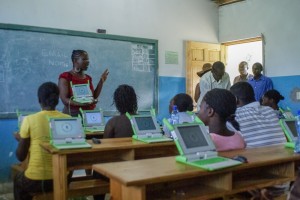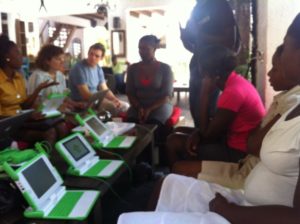 Growing suspicions that recently engulfed the credibility of humanitarian organizations working in Haiti could cause people to underestimate the significant initiative launched in Cap-Haitien by Hands on Haiti, Mothering Across Continent and STARS Alliance; however, their work in Northern Haiti this spring will be nothing short of extraordinary.
Growing suspicions that recently engulfed the credibility of humanitarian organizations working in Haiti could cause people to underestimate the significant initiative launched in Cap-Haitien by Hands on Haiti, Mothering Across Continent and STARS Alliance; however, their work in Northern Haiti this spring will be nothing short of extraordinary.
Haiti proclaimed its independence 208 years ago, just a short generation after that of the U.S.’s, yet its rural population still considers basic necessities, such as clean water or a minimal police presence a rare commodity. Absent essential diffusion of electricity, the television, the computer and the Internet, a large portion of the population remained isolated from not only its own government, but also from the rest of the world. Those major structural deficiencies underlined the importance of this trip, during which undergraduate and Ph.D. students, faculty and community mentors brought servers, laptops and customized educational software to young students.
After training teachers and students on the new laptops for two straight weeks, instructors hope to enhance learning and creativity through the acquired computer-based education. Many people in developed countries might take those skills for granted, but for those communities, it is not as easy as driving to the local coffee shop or the nearest Wi-Fi spot to post a blog entry or fulfill some social media need. It is rather a lengthy trip to the next city with electricity and perhaps a cyber café to browse the web.
 Scrutinizing humanitarian organizations that mismanaged funds collected on behalf of the victims of the Jan. 2010 earthquake that, according to government estimates, killed more than 300,000 people is vital. However, It is equally necessary to empower organizations that are making significant contributions to segments of the Haitian population that have been neglected for more than two centuries. Similarly, we must refrain from distasteful stigmatization that could hinder important progress many organizations are making in Haiti.
Scrutinizing humanitarian organizations that mismanaged funds collected on behalf of the victims of the Jan. 2010 earthquake that, according to government estimates, killed more than 300,000 people is vital. However, It is equally necessary to empower organizations that are making significant contributions to segments of the Haitian population that have been neglected for more than two centuries. Similarly, we must refrain from distasteful stigmatization that could hinder important progress many organizations are making in Haiti.
With the world’s immense electronic library at their fingertips, young Haitians could usher in a new era of social, economic and political development they would otherwise not get from their government for at least another century. These seeds of intellectual development planted at the grassroots level will add a new dimension to those young minds, empowering them to develop their own communities for future generations.